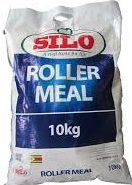Small millers petition government
Share

Harare (New Ziana) –Small and medium grain millers have petitioned the government to review Statutory Instrument (SI) 119 of 2020 to specifically allow only players in the milling industry to import maize meal and wheat flour duty free.
Last week the government issued SI 119 of 2020 which allowed the duty free importation of maize meal and wheat flour for a period of six months.
“With effect from 22nd May, 2020 and for a period of six months to 21st November 2020, duty is wholly suspended on wheat flour in bulk, in packaging of 50 kg or more. Pre-packed wheat flour in immediate packings for retail sale, less than 50 kg and maize meal,” read part of the SI.
While appreciating the good intentions behind the move, the millers argue that allowing anyone, including those outside the milling industry, to import maize-meal and wheat flour duty free will push many of them out of business.
Instead, the millers want the government to amend the SI to benefit only those with vested interests in the milling industry.
In correspondence to the Ministry of Finance and Economic Development, the Small and Medium Millers Association of Zimbabwe (SMMAZ) chairman Davis Muhambi said they were concerned about the negative effects of the SI on the milling industry.
“Given the extraordinary times we find ourselves in, we agree with the need to compliment subdued local production of maize meal and wheat flour with imports, in addition to the removal of the duties payable. However, our concern is that allowing any and all entities, which are not invested in the milling industry, will have a negative long-term impact on the viability of SME millers,” he said.
“We have, over the years, invested heavily into setting up equipment, structures and systems to provide mealie meal and flour to our citizens. This is our role in the economy and it still remains even during these times. It is our contention therefore that this S.I should be limited only to business entities that are in the milling industry to safeguard the viability of SME millers, jobs and livelihoods.”
Muhambi said reserving the importation of maize meal and wheat flour to grain millers would also serve as a self-regulation mechanism to balance imports and local production.
“Precedent has been set in the dairy and fuel sectors where only business entities that are licensed to operate in said industry are allowed to import goods and services related to their trade. We humbly request therefore that S.I 119/2020 be amended to reflect the same precedent,” he said.
“We have ample capacity through our network capital across borders in the Southern African Development Community, to guarantee adequate supply of both mealie meal and flour.”
Muhambi also appealed to the government to expedite payments owed to millers who are participating in the roller meal subsidy programme as their dues are being eroded by inflation.
“We would also want to draw your attention to the fact that most SME millers, whose interest we represent, have had outstanding subsidy payments due to them by government being eroded by inflation, with some payments currently still outstanding since February this year,” he said.
“SME millers have lost up to 60 percent of their working capital. This is the sacrifice that your local SME millers have made to ensure support for the governments subsidy programme. In light of all of this, S.I 119/2020 inevitably seems to suggest that this was all in vain. The optics paint a picture of glaring neglect of local SME millers by government, in favor of South African millers, who will now come and enjoy brisk business, while we are left to pick up the pieces as we try to recover from the bruising experiences of delayed payments and loss of working capital.”
New Ziana









